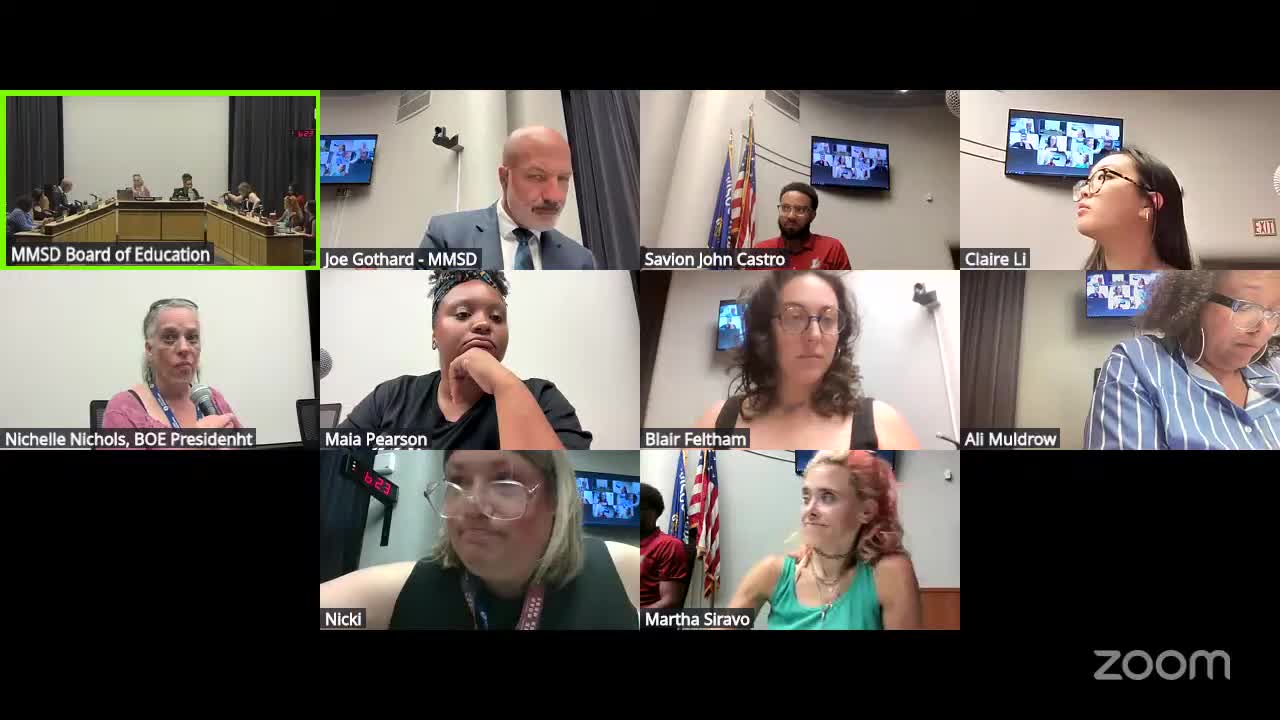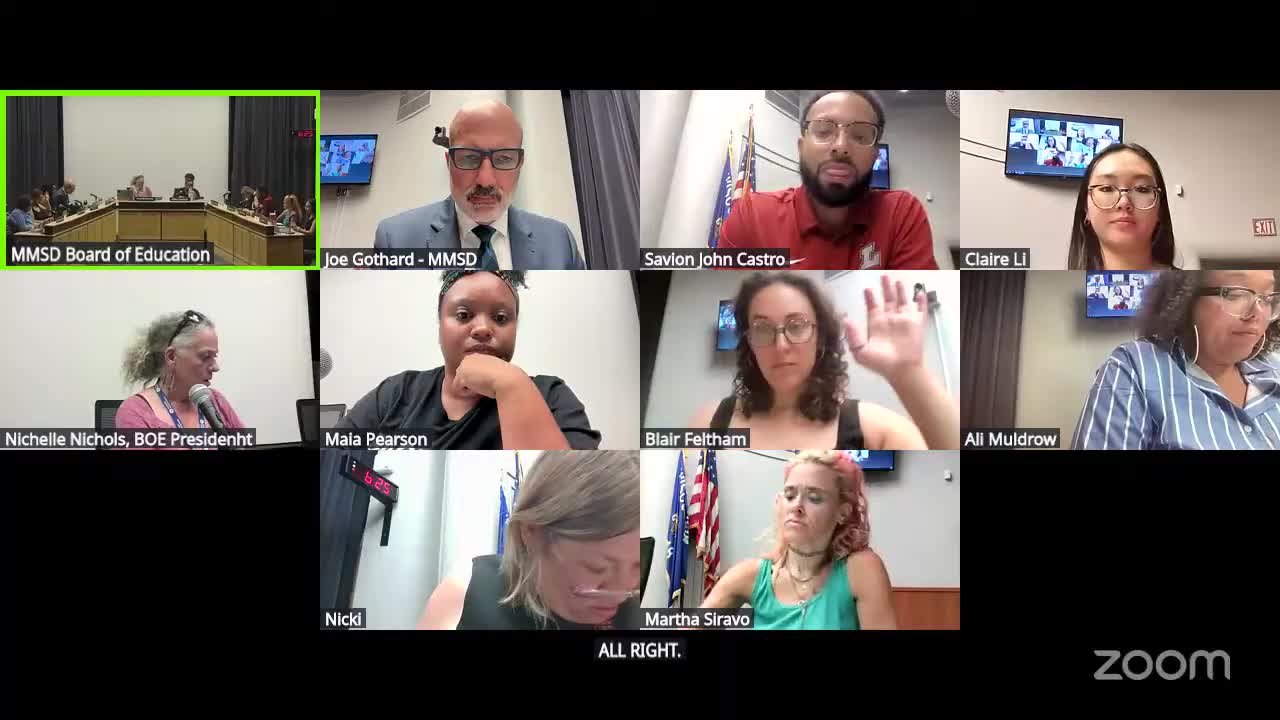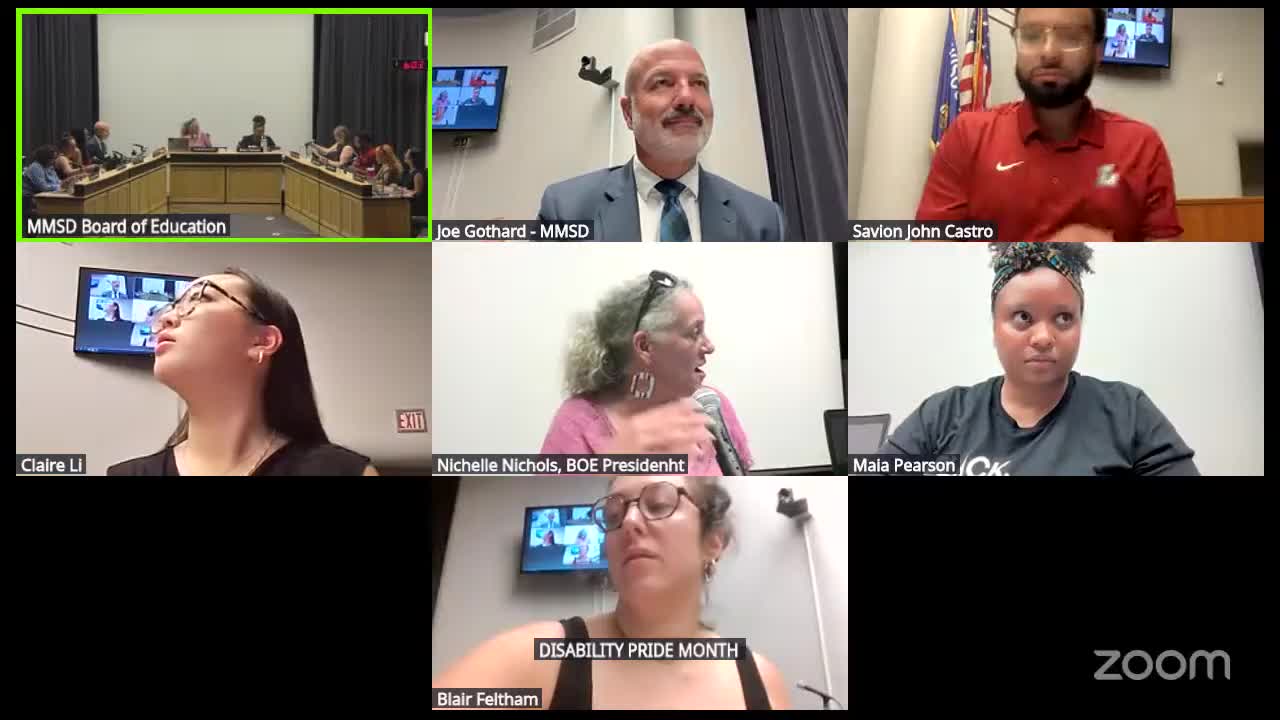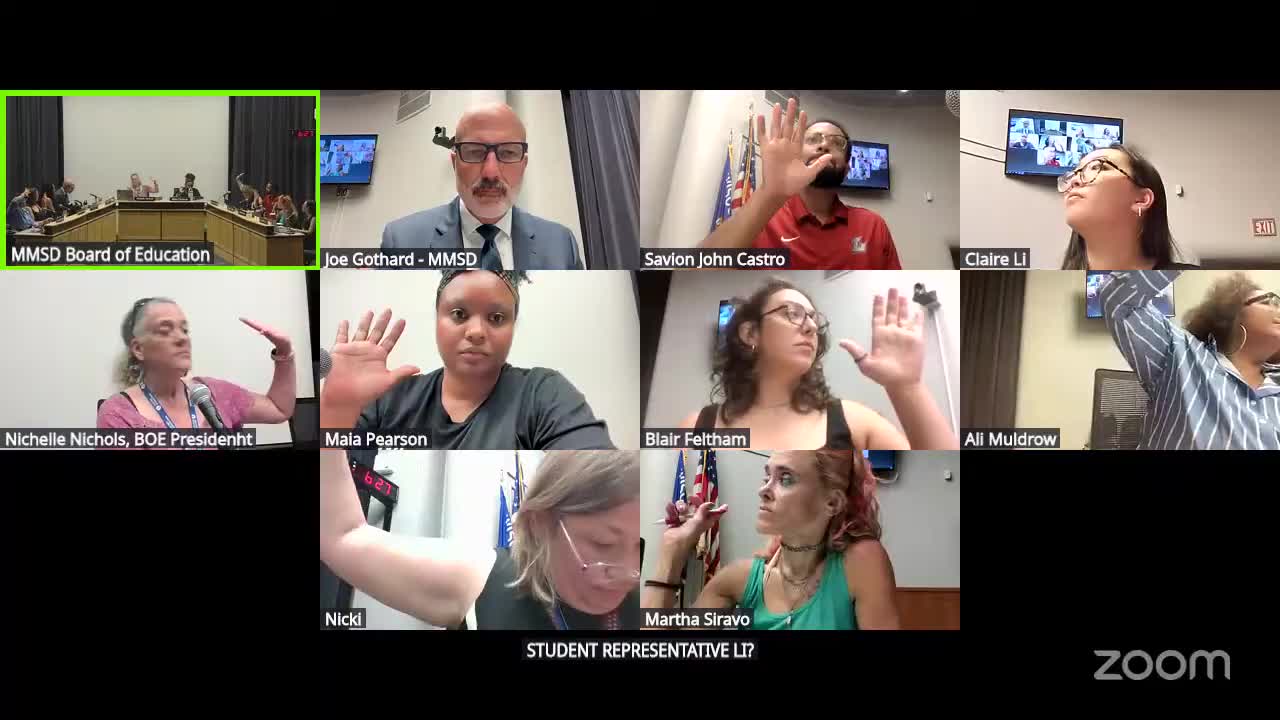Article not found
This article is no longer available. But don't worry—we've gathered other articles that discuss the same topic.

MMSD launches Wisconsin's first Freedom School; summer arts and career camps continue

Board affirms WIDA and Wisconsin academic standards for 2025–26

Board appoints independent hearing officers for 2025–26 expulsion hearings

MMSD board proclaims July Disability Pride Month

